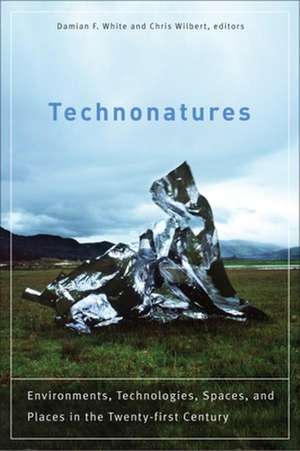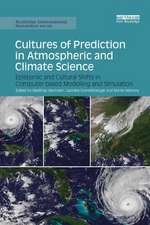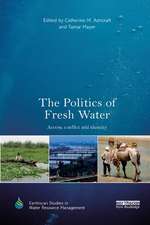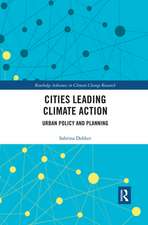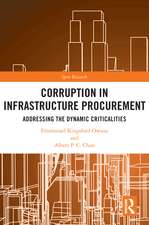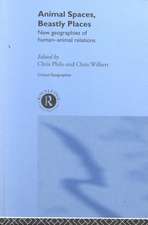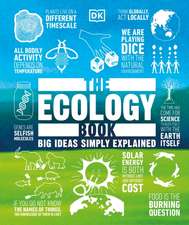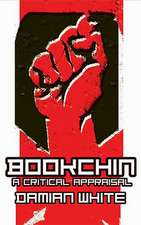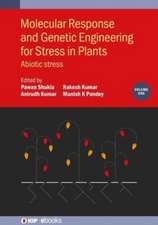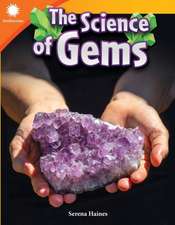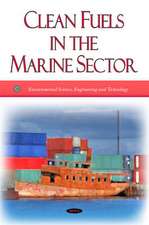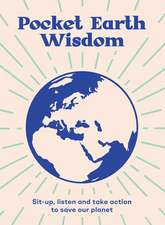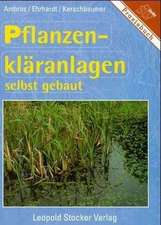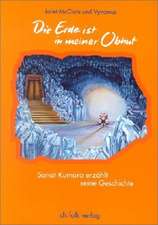Technonatures: Environmental Humanities
Editat de Damian F. White, Chris Wilberten Limba Engleză Paperback – 31 mar 2009
Din seria Environmental Humanities
-
 Preț: 293.91 lei
Preț: 293.91 lei -
 Preț: 299.58 lei
Preț: 299.58 lei -
 Preț: 330.67 lei
Preț: 330.67 lei - 13%
 Preț: 416.31 lei
Preț: 416.31 lei - 13%
 Preț: 447.85 lei
Preț: 447.85 lei -
 Preț: 326.80 lei
Preț: 326.80 lei -
 Preț: 305.05 lei
Preț: 305.05 lei -
 Preț: 294.47 lei
Preț: 294.47 lei -
 Preț: 372.73 lei
Preț: 372.73 lei -
 Preț: 287.63 lei
Preț: 287.63 lei -
 Preț: 324.89 lei
Preț: 324.89 lei -
 Preț: 291.99 lei
Preț: 291.99 lei -
 Preț: 224.15 lei
Preț: 224.15 lei -
 Preț: 287.63 lei
Preț: 287.63 lei -
 Preț: 328.76 lei
Preț: 328.76 lei -
 Preț: 487.37 lei
Preț: 487.37 lei - 15%
 Preț: 444.61 lei
Preț: 444.61 lei
Preț: 323.91 lei
Nou
61.99€ • 64.48$ • 51.17£
Carte tipărită la comandă
Livrare economică 15-29 aprilie
Specificații
ISBN-10: 1554581508
Pagini: 282
Ilustrații: Illustrations
Dimensiuni: 154 x 228 x 17 mm
Greutate: 0.41 kg
Editura: Wilfrid Laurier University Press
Seria Environmental Humanities
Cuprins
Table of Contents for Technonatues: Environments, Technologies, Spaces, and Places in the Twenty-first Century, edited by Damian F. White and Chris Wilbert
Introduction: Inhabiting Technonatural Space/Times | Damian F. White and Chris Wilbert
Part One: Conceptualizing Technonatural Time/Spaces
Chapter One: Governing Global Environmental Flows: Ecological Modernization in Technonatural Time/Spaces | Peter Oosterveer
Chapter Two: Circulations and Metabolisms: (Hybrid) Natures and (Cyborgs) Cities | Erik Swyngedouw
Chapter Three: The Cellphone-in-the-Countryside: On Some of the Ironic Spatialities of Technonature | Mike Michael
Chapter Four: Living Cities: Towards a Politics of Conviviality | Steve Hinchcliffe and Sarah Whatmore
Part Two: Experiencing Technonatural Cultures
Chapter Five: Boundaries and Border Wars: DES, Technology, and Environmental Justice | Julie Sze
Chapter Six: Critical Mass: How Built Bodies Can Help Forge Environmental Futures | Fletcher Linder
Chapter Seven: Living Betwwen Nature and Technoogy: The Suburban Constitution of Environmentalism in Australia | Aidan Davison
Part Three: Technonatural Present-Futures
Chapter Eight: The Property Boundaries/Boundary Properties in Technonatural Studies: "Inventing the Future" | Timothy W. Luke
Chapter Nine: Fluid Architectures: Ecologies of Hybrid Urbanism | Simon Guy
Chapter Ten: A Post-industrial Green Economy: The New Productive Forces and the Crisis of the Academic Left | Brian Milani
Contributors
Index
Contributors
Aidan Davison is a lecturer in human geography and environmental studies at the University of Tasmania. His interdisciplinary research interests arise at intersections of socio-cultural themes of nature, technology, and sustainability. The author of Technology and the Contested Meanings of Sustainability (Albany, NY: SUNY Press, 2001), he has published many articles and book chapters on topics such as public perceptions of biotechnology, Australian environmentalism, and education for sustainability.
Simon Guy is a professor of architecture at the University of Manchester. His research aims to critically understand the co-evolution of design and development strategies and socio-economic processes shaping cities. His publications include (with S. Moore) Sustainable Architectures: Cultures and Natures in Europe and North America (Oxford: Spon, 2005) and (with Elizabeth Shove) A Sociology of Energy, Buildings, and the Environment: Constructing Knowledge (London: Routledge, 2000).
Steve Hinchliffe is a reader in environmental geography and director of research for geography at the Open University. He works on the geographies of nature, non-humans, and environments. He is author and editor of numerous books and articles on issues ranging from risk and food to biosecurity, urban ecologies, and nature conservation. His research focuses on the "making of things in practices" and draws together insights from science and technology studies (STS) and geography. His publications include Geographies of Nature: Societies, Environments, Ecologies (London: Sage, 2007); and (with Kathryn Woodward) The Natural and the Social: Change, Risk and Uncertainty, second edition (Oxford: Oxford University Press, 2004).
Fletcher Linder is an associate professor of anthropology at James Madison University. He has studied and published across a variety of topics, including sports and aesthetics, illness experience and care, interpersonal violence, and environmental politics. He has conducted ethnographic, epidemiological, urban-landscape, and community-based intervention research in such areas as the American South, California, Canada, and Australia. He is presently completing a monograph titled "Waiting for Arnold: Image, Body Discipline, and Late Capitalism."
Timothy W. Luke is University Distinguished Professor of Political Science at Virginia Polytechnic Institute and State University in Blacksburg, Virginia. He also is the Program Chair for Government and International Affairs in the School of Public and International Affairs, and founding Director of the Alliance for Social, Political, Ethical, and Social Theory (ASPECT) in the College of Liberal Arts and Human Sciences at Virginia Tech.His publications include Capitalism, Democracy and Ecology: Departing from Marx (Champaign: University of Illinois Press, 1999); The Politics of Cyber Space (co-edited with Chris Toulouse- New York: Routledge, 1998); and Eco Critique: Contesting the Politics of Nature, Economy and Culture (Minneapolis: University of Minnesota Press, 1997). The author of more than 150 journal articles and edited book chapters, he writes extensively on the politics of museums as well environmental politics, international affairs, and social theory.
Mike Michael is a professor of sociology of science and technology, and director of the Centre for the Study of Invention and Social Process, in the sociology department, Goldsmiths, University of London. His research is concerned with a number of areas, notably the public understanding of science; the sociology of mundane technologies; the sociology of biomedical innovation; the sociology of everyday life; animals and society; and materiality and sociality. He is the author of Technoscience and Everyday Life: The Complex Simplicities of the Mundane (Bristol: Open University Press, 2006); Science, Social Theory, and Public Knowledge (with Alan Irwin-Bristol: Open University Press, 2003); Reconnecting Culture, Technology, and Nature: From Society to Heterogeneity (London: Routledge, 2002); and Constructing Identities: The Social, the Nonhuman, and Change (London: Sage, 1996).
Brian Milani is an associate of the Transformative Learning Centre and coordinator of the Business and Environment Program at York University's Faculty of Environmental Studies. He is author of Designing the Green Economy (Lanham: Rowman and Littlefield, 2000) and a member of the Coalition for a Green Economy. His focus for more than two decades has been on creating grassroots ecological alternatives through community development, construction, education, and general trouble making. He was co-founder of Green City Construction and is the director of Toronto's long-running course on green economic alternatives, "The Green Economy at the Labour Education Centre," featuring Toronto's cutting-edge eco-innovators.He has also been involved with green labour activities at the Labour Council of Toronto and Carpenters Local 27.
Peter Oosterveer is a senior lecturer in environmental policy in the Department of Social Sciences at Wageningen University. He has published extensively on globalization and the sustainability of food production and consumption; the labelling and certification of food; environmental policy and management in Africa; and social theory and "a sociology of flows."
Erik Swyngedouw is a professor of geography at the University of Manchester's School of Environment and Development. From the late 1980s until 2006 he taught at Oxford University, latterly as Professor of Geography, and was a Fellow of St. Peter's College. His research focuses on political-economic analysis of contemporary capitalism. He has produced several major works on economic globalization, regional development, finance, and urbanization. Recently his interests have turned to political-ecological themes and the transformation of nature, notably water issues, in Ecuador, Spain, Britain, and elsewhere in Europe. His publications include Globalizations (Philadelphia: Temple University Press, 2004); Social Power and the Urbanization of Water- Flows of Power (Oxford: Oxford University Press, 2004); and (with F. Moulaert and A. Rodriguez, eds.), The Globalized City: Economic Restructuring and Social Polarization in European Cities (Oxford: Oxford University Press, 2003).
Julie Sze is associate professor of American studies at the University of California, Davis, as well as the founding director of the Environmental Justice project for UC Davis's John Muir Institute for the Environment. Sze's book, Noxious New York: The Racial Politics of Urban Health and Environmental Justice, won the 2008 John Hope Franklin Publication Prize, awarded annually to the best published book in American studies. Sze's research investigates environmental justice and environmental inequality; culture and environment; race, gender, and power; and community health and activism. She has published on a wide range of topics such as energy and air polution activism; toxicity; the cultural politics of the Hummer, and on environmental justice novels and cultural production.
Sarah Whatmore is a professor of geography and director of the International Graduate School at the Oxford University Centre for the Environment/ School of Geography. Her research focuses on relations between people and the material world, particularly the living world, and the spatial habits of thought that inform the ways in which these relations are imagined and practised in the conduct of science, governance, and everyday life. She has published widely on the theoretical and political implications of these questions in the fields of agriculture and food; land rights and land-use planning; and biodiversity and biotechnology. These themes are brought together in her most recent books: Hybrid Geographies: Natures Cultures Spaces (London: Sage, 2002); Using Social Theory: Thinking Through Research (co-edited with Michael Pryke and Gillian Rose- London: Sage, 2003); and Cultural Geography: Critical Concepts, 2 vols. (co-edited with Nigel Thrift- London: Routledge, 2004). She received the Cuthbert Peek award from the RGS/IBG in 2003 for "innovative contributions to the understanding of nature-society relations."
Damian F.White is an assistant professor of sociology in the Department of History, Philosophy, and Social Science at the Rhode Island School of Design (RISD). Prior to coming to RISD, he was an assistant professor of sociology at James Madison University; a post-doctoral research fellow in the Department of Innovation Studies, University of East London, working on the European Union project "Optimising the Public Understanding of Science"; and a lecturer in sociology at Goldsmiths College, University of London. He has published articles on the historical relations between human societies and nature; ecotechnology and the "green industrial revolution"; the "production of nature" debate; anti-environmentalism; and the libertarian and anti-authoritarian traditions of the political left. He is the author of Murray Bookchin: A Critical Appraisal (London: Pluto Press, 2008) and, with Alan Rudy and Brian J. Gareau, the author of The Environment, Nature and Social Theory (London: Palgrave Macmillan, forthcoming).
Chris Wilbert is a senior lecturer in tourism and geography in AIBS at Anglia Ruskin University, England. He has published articles on animal geographies, political ecology, climate change and leisure/tourism. He is co-editor (with Chris Philo) of Animal Spaces, Beastly Places: New Geographies of Human-Animal Relations (London and New York: Routledge, 2000) and Killing Animals (Champaign: University of Illinois Press, 2006) with the Animal Studies Group. Recent articles have focused on the politics of avian flu in southeast Asia in Focas: Forum on Contemporary Art & Society 6 (Special Issue on Regional Animalities, 2007), and on crime scene tourism (with Rikke Hansen) in the book Strange Spaces: Explorations into Mediated Obscurity edited by André Jansson and Amanda Lagerkvist (Aldershot: Ashgate, 2009).
